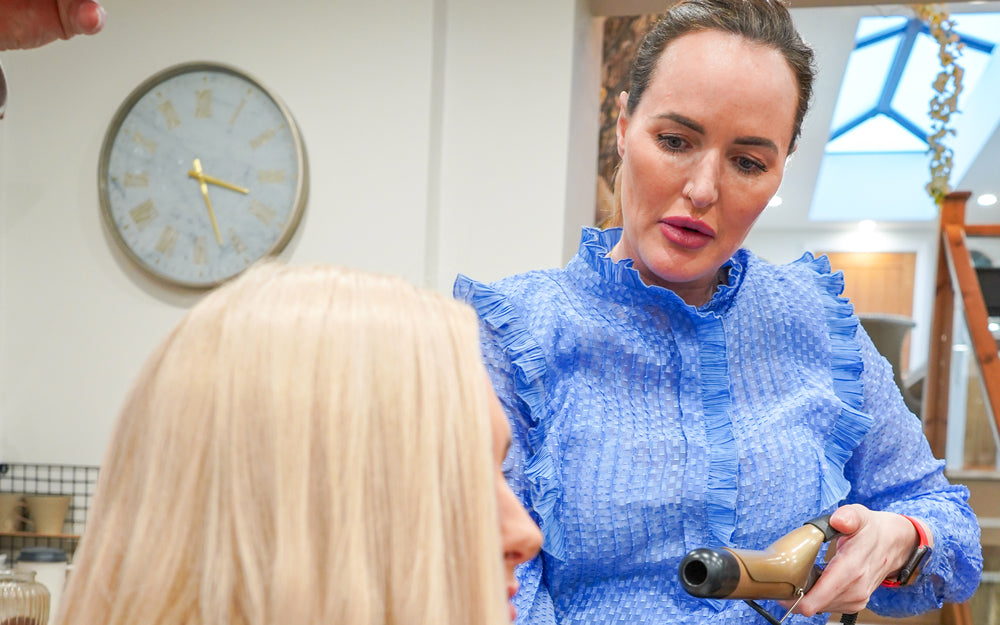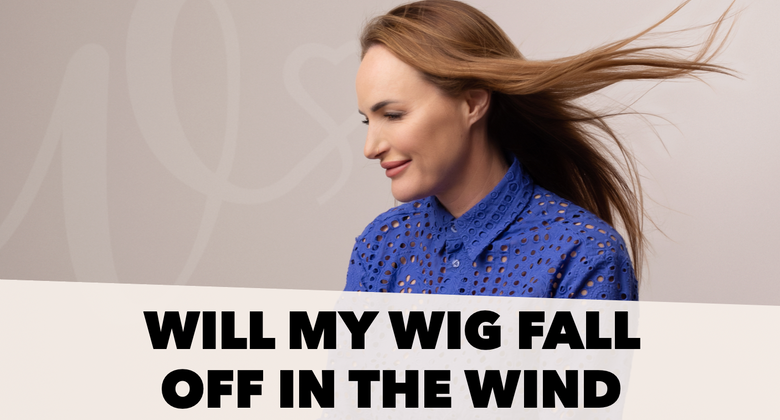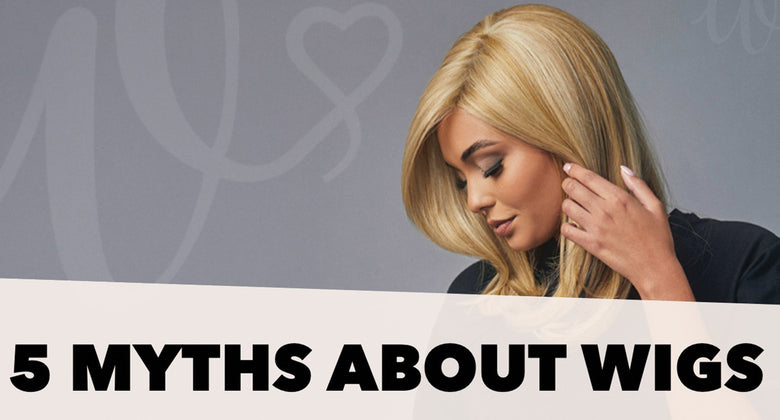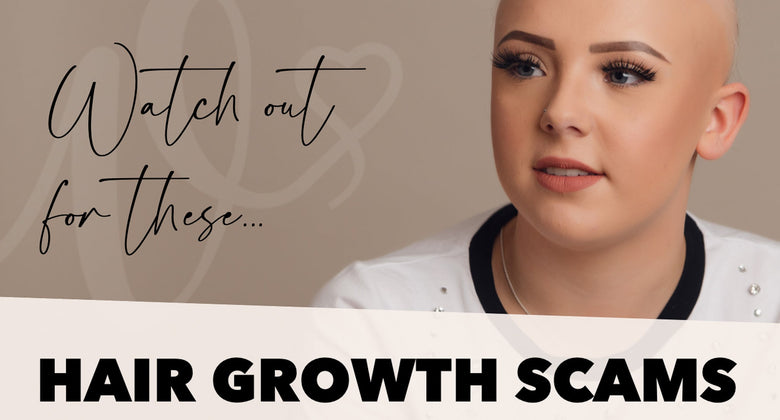Things Your Oncologist Team Won’t Tell You About Hair Loss

Oncologists do incredible work. They devote themselves to getting you through your cancer journey physically. As someone who has experienced cancer first-hand, I can say that my oncology team is the very reason that I am still alive today. So, I have nothing but pure admiration for each and every dedicated person who has ensured that I am here now, cancer-free and sharing my story with you!

By preparing your body for the toll of treatment to come, oncologists help you to survive. Since their aim is solely to improve your health and rid your body of cancer, it isn’t their job to be as concerned with hair loss. The side effect of losing your hair is not life-threatening nor even harmful to your health in any way. So, many medical professionals may view hair loss as something minor and kinda brush over it.
However, after meeting and helping a few thousand women who are each going through their own journeys with cancer, I have found that hair loss is a major concern for so many. As a cancer survivor and hair-loss expert myself, I can say that it is often the second question a woman will ask. It sounds dramatic as I write this but I promise you it is so very very true.
“Will I die? … then Will I lose my hair…..?”
Prior to meeting me or one of our team (many of whom have also survived cancer) very few women step through our salon doors already understanding the process of hair loss. They generally call us in a panic. It might be the same day or after they have got home from the hospital having been told the news they have cancer – they truly want to know what happens next with the hair loss so they scour the net looking for answers. Everything is moving so quickly, they know they have the diagnosis, they probably also have the date for their first chemo, yet they know nothing about the hair-loss.
To this day, every client comes in with a huge array of questions, admitting they aren’t entirely sure about what is going to happen. Even those who understand the concept of losing their hair are never quite prepared for the reality of it.
My own thoughts
During my treatment, I needed the facts – hard and clear with no sugar coating! If I know what to expect from a situation, I can be mentally strong and prepare myself for the outcome. I remember sitting down with oncology teams, knowing that they had only one hour to explain everything to me. My brain was trying to process so many things at once – one blink and I’d miss it! Every time, I’d leave kicking myself about all the questions that I had forgotten to ask.

“Knowledge is power and, at a time when my life was utterly out of control, I knew that being told about what would happen to my body beforehand would have given me a bit of control back! “
So, let’s take some time to share what your oncologists perhaps didn’t tell you based on the questions that I get asked all the time…

Will cancer treatment mean I lose my hair?
Yes, hair loss happens. Should your oncology team tell you to prepare to lose your hair – it will happen. So many of us hope to be the exception to the rule and, while it is completely understandable, the best thing that you can do for your mental health is come to terms with the process.
Can I prevent my hair from falling out during cancer treatment?
No, you can’t prevent your hair from falling out. Lots of women will stop brushing their hair in the hopes that it will stay put. Not only will this not work, but it will actually cause lots of tangling issues. It is important to brush your hair more often from Day 14 onwards, as this will help release the hairs which are due to fall. Also, plaiting long hair before you go to bed is another great way to avoid tangling overnight.
Will my rate of hair loss depend on my cancer treatment plan?
Yes. How quickly, slowly, much or little you lose your hair will depend on how many treatment cycles you have, what’s in your prescribed dosage, the strength of the dosage, whether your cycles are weekly or three-weekly, if you have a break from treatment, how thick your hair is, how healthy and strong your body is – and more. These are all factors which play their part in making hair loss an individual experience for everyone. If your oncology team says to expect thinning hair rather than total hair loss, that is different altogether and we will explain that at another time.
From our own research and recordings of over one thousand women, we have found that for most chemotherapy-related hair loss, when people have a cycle every three weeks, hair loss generally occurs on Day 17 (Day 1 being your first cycle).
How will I know when my hair is going to start falling out?
Lots of women experience a strange feeling on their scalp once they have had some chemotherapy and before they are due to lose their hair – you may feel a weird discomfort and tingle that’s quite uncomfortable. This feeling is quite normal. This tingle tends to go once the hair has fallen out.

Before 
How long does it take to lose hair from chemo?
Usually, the fall (hair loss) takes about 3-5 days. Hair loss usually covers the whole head rather than concentrating in certain spots. You won’t wake up one day and find it’s all gone, nor does it fall out in clumps but rather it is a diffuse hair loss, a shedding that does not stop. Once this shedding starts it doesn’t stop. So, if you run your hands through your hair, strands will fall out every time and you also can’t stop touching it you will likely feel compelled to keep putting your hands through it at this stage.
Will I lose my eyebrow and eyelash hair during cancer treatment?
From surveying so many women and understanding the processes, someone who completes a full treatment plan with months of chemotherapy will lose their eyebrows and eyelashes at least partially. However, unlike your head hair, this doesn’t tend to happen right away but rather a few months down the line.
Will my hair grow back during chemo?
Hair loss comes and goes. Throughout your treatment plan and after your initial hair loss, you will most likely have periods of small regrowth. Quite often your chemotherapy drugs will be tweaked and changed throughout your treatment cycles this can lead to periods of regrowth and loss throughout your full chemotherapy plan.
How we can help…
I know personally as a hairdresser and cancer survivor a young woman and a wife and mummy how utterly important understanding the full cycle of hair loss and regrowth is. That’s why I’ve put my heart and soul into helping women in this position come to terms with it and find ways to feel more like themselves as it starts to grow back – from hair integration solutions to wigs.

For some of our clients, they just want to hear the truth, and book in for their first cut once their hair starts to return. For other clients, it’s about a natural looking wig and hair system during and after the treatment.
For us, being totally honest, the women who act upon the news of hair loss quickly cope best with it. As much as we want to bury our heads in the sand over the hairloss it doesn’t help, it makes it ever more distressing when it happens and you are not prepped. It’s crucial to know when it will happen? How will it happen?
And, when it does happen you can be ready to put something in place be that a full wig, partial wig, a scarf topper or integration system. From our experience, once a lady has tried some solutions and has a plan she will cope better with the hair loss when it happens.
Our number one goal? To tell you the truth so you know what to expect and can prepare, whilst giving you the full range of wig and hair integration systems available to help you feel like you during the whole process.
While oncologists are the real lifesavers, we’re here to help you deal with the worry and stress of hair loss.
Browse our full range of wigs, scarfs and hair pieces today, or, book an appointment for a friendly consultation with me, Nicola.



